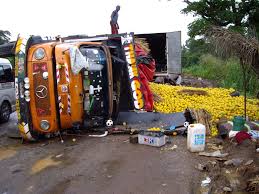The FRSC Corps Marshal, Mr Boboye Oyeyemi, had described as “unacceptable avoidable crashes that are speed related, stressing that studies showed that speed related factors alone accounted for about 50.8 percent of crashes that occurred in Nigeria last year”.
As has been proven, speed limiting devices automatically control the speed of a moving vehicle to the programmed speed limits against the tendency of the drivers to drive above the stipulated speed limit.The use of speed limiting device in vehicles is, however, not new in automobile technology, as some nations, even in Africa, had since introduced it.
But for Nigeria, the speed limiter initiative could translate to a wholesome reduction of road traffic crashes nationwide by at least 35%. When the phase two of the initiative is extended to other categories of motorists, especially the private vehicle owners, road traffic crash fatality would have been brought under manageable control in Nigeria. This will certainly facilitate, to a large extent, the goals of the Vision 20:2020 of placing Nigerian roads within the league of the 20 safest global roads.Despite the novelty of the speed limiting device in stemming excessive speeding, stakeholders and motorists, as is usual with strategies and innovations by the FRSC to stop deaths and injuries on our highways, have always had two or sometimes three opposing opinions.
While stakeholders, who are proactive in the use of best practices, are always quick to embrace the innovations, there are those whose response is often slow with initial apprehension and ultimately acceptance. The same has been the case with the speed limiter enforcement. I know of the stakeholders who, from the onset, embraced the novelty but at a recent press parley in Abuja appealed to the FRSC to postpone the June 1 enforcement date which they described as good.
.
However in their opinion, the just concluded national elections ate into their advocacy campaigns meant to raise awareness and acceptance of the scheme.The stakeholders, drawn from the following unions,: Petroleum Tankers Drivers(PTD)of the National Union of Petroleum and Natural Gas (NUPENG),National Union of Road Transport Workers(NURTW),Road Transport Employers Association of Nigeria(RTEAN), called on the leadership of the FRSC to rethink the date and grant them more time to enable them reach out to their members.
The first to speak was Mr Salmon Oladiti,the Chairman of the PTD, who asked for a little time in order to sensitize his members across the country, noting, however, that speed limiter device was very good for our country as it controls our drivers on the highways. He observed that if their request for 90days or three months extension could be granted, it will be good.
Alhaji Nojeem Yasin,President of the NURTW,urged the regulators to delay enforcement for the next four months to also enable the union sensitize its members on the initiative. These positions were echoed by Mr Adeniyi Yusuf, the National Secretary-General of the RTEAN, who cited security concerns in some parts of the country among reasons for the call of a postponement.Although the FRSC boss, Oyeyemi, said only stakeholders could adjust the June 1 date, it is exciting to know that 72 hours after this appeal was made, key stakeholders rose from the May 27 parley with the commencement of subtle enforcement effective on that date and full enforcement from September 1.







No comments:
Post a Comment